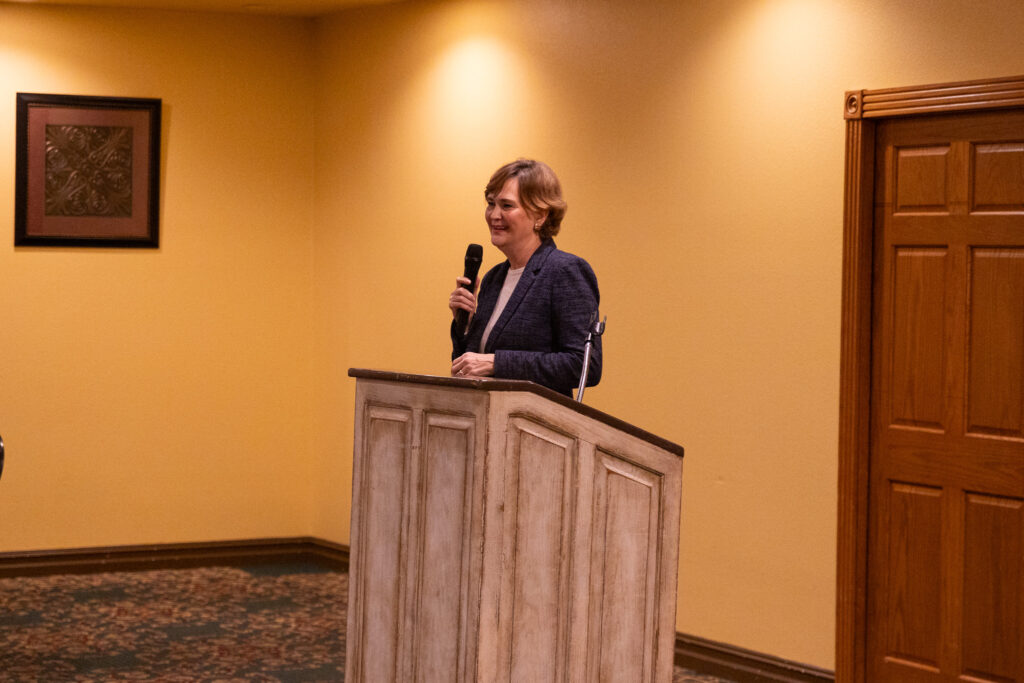
Increasing degree completion to strengthen Oklahoma’s workforce pipeline in education, healthcare, and STEM (science, technology, engineering, and math) fields continues to be the state system of higher education’s primary objective. That was the message delivered by Chancellor Allison D. Garrett as she presented the Oklahoma State Regents for Higher Education’s 2024 legislative agenda and FY25 budget request to an audience of lawmakers, community leaders and educators during OSRHE’s Southeast Oklahoma Legislative Briefing at Pete’s Place in Krebs on Jan. 26.
The State Regents are requesting $1.1 billion in state funding for FY25, which reflects an increase of $122.4 million or 12.2% over the FY24 appropriation of $1 billion.
“Producing more college graduates to address Oklahoma’s employer needs is our top priority and central to the success of our Blueprint 2030 strategic plan,” said Chancellor Garrett. “This budget request builds on successful workforce development initiatives and supports academic and operational innovations at our public colleges and universities.”
The State Regents are requesting $9.5 million for FY25 to fund the Inspired to Teach program and expand concurrent enrollment.
Public higher education’s budget request also includes strategic investments that align with Oklahoma’s projected workforce demand in STEM and healthcare and focus on increasing adult degree completion. The State Regents seek $41.5 million for critical workforce development initiatives, including funds to increase enrollment and graduation in STEM disciplines, expand nursing education program and medical residency capacity to address the state’s shortage of nurses and doctors, and provide additional scholarships for adult students nearing completion of a college degree or pursuing an industry-recognized micro-credential or certificate.
The State Regents also seek $71.4 million in FY25 to fund performance-based institutional allocations to address operational needs, address rising risk management costs, strengthen college access and academic success services for students, and fund strategic collaborations and shared services to drive long-term efficiencies across the state system. The budget request includes capital funding for system and structure upgrades to enhance campus safety and cybersecurity.
Another priority for the State Regents in the upcoming legislative session is refining the Oklahoma’s Promise scholarship to reduce administrative barriers to student access and participation. Recognized by many as one of the top promise scholarship programs in the country, Oklahoma’s Promise is considered a national model that emphasizes both academic preparation and financial support for college. More than 100,000 students have earned college tuition scholarships through Oklahoma’s Promise since the program’s inception.